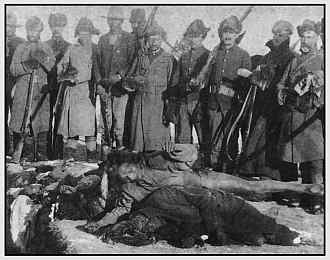Pundits and politicians are all too eager to condemn violent protest. How quickly they forget our nation's history
By Tim Wise
We are here because of blood, and mostly that of others; here because of our insatiable and rapacious desire to take by force the land and labor of those others. We are the last people on Earth with a right to ruminate upon the superior morality of peaceful protest. We have never believed in it and rarely practiced it. Rather, we have always taken what we desire, and when denied it we have turned to means utterly genocidal to make it so.
Which is why it always strikes me as precious the way so many white Americans insist (as if preening for a morality contest of some sorts) that “we don’t burn down our own neighborhoods when we get angry.” This, in supposed contrast to black and brown folks who engage in such presumptively self-destructive irrationality as this. On the one hand, it simply isn’t true. We do burn our own communities, we do riot, and for far less valid reasons than any for which persons of color have ever hoisted a brick, a rock, or a bottle. We do so when our teams lose the big game or win the big game; or because of something called Pumpkin Festival; or because veggie burritos cost $10 at Woodstock ’99 and there weren’t enough Porta-Potties by the time of the Limp Bizkit set; or because folks couldn’t get enough beer at the 2002 Winter Olympics in Salt Lake; or because surfers (natch); or St. Patty’s Day in Albany; or because Penn State fired Joe Paterno; or because it’s a Sunday afternoon in Ames, Iowa; and we do it over and over and over again. Far from mere amateur hooliganism, our riots are indeed violent affairs that have been known to endanger the safety and lives of police, as with the infamous 1998 riot at Washington State University. To wit:
The crowd then attacked the officers from all sides for two hours with rocks, beer bottles, signposts, chairs, and pieces of concrete, allegedly cheering whenever an officer was struck and injured. Twenty-three officers were injured, some suffering concussions and broken bones.
Seventeen years later, one still waits for the avalanche of conservative ruminations regarding the pathologies of whites in Pullman, whose disrespect for authority suggests a larger culture of dysfunction, no doubt taught to them by their rural, corn-fed families and symbolized by the easily recognizable gang attire of Carhartt work coats and backwards baseball caps.
On the other hand, it is undeniably true that when it comes to our political anger and frustration (as contrasted with that brought on by alcohol and athletics) we white folks are pretty good at not torching our own communities. This is mostly because we are too busy eviscerating the communities of others—those against whom our anger is aimed. In Iraq, Afghanistan, Libya, Panama, Vietnam, Laos, Cambodia, Hiroshima, Nagasaki, Manila, and on down the line.


No comments:
Post a Comment